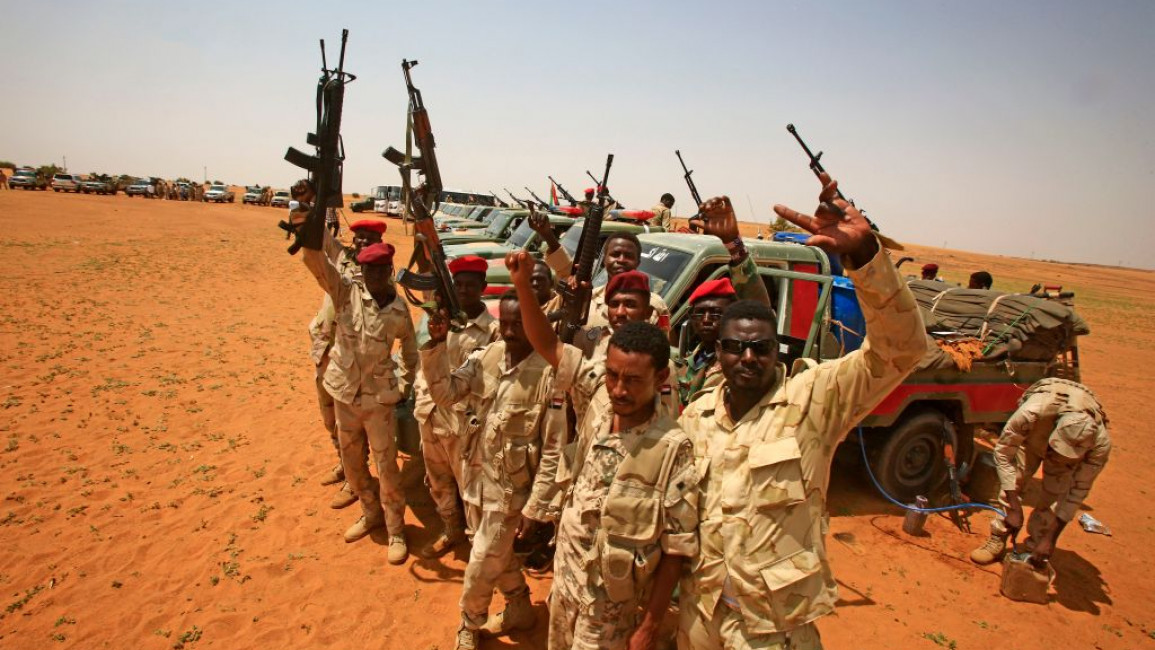UN envoy urges Sudan's RSF paramilitary leader to show restraint
The UN special envoy for Sudan met with the powerful leader of a Sudanese paramilitary force, urging him to allow peaceful protests Saturday and avoid confrontation in the wake of a military coup earlier this week.
Pro-democracy activist groups have called for “million-person” marches across the country Saturday to press demands for re-instating a deposed transitional government and releasing senior political figures from detention.
The takeover threatens to derail Sudan's fragile Western-backed transition to democracy which got under way two years ago, after the ouster of long-time autocrat Omar al-Bashir.
The UN envoy, Volker Perthes, met late Friday with General Muhammad Hamdan Dagalo, a coup leader seen as close to Sudan's strongman, General Abdel-Fattah Al-Burhan.
Dagalo commands the feared Rapid Support Forces, a paramilitary unit that controls the streets of the capital of Khartoum and played a major role in the coup. The RSF is notorious for atrocities and rapes during the conflict in Sudan's Darfur region and for deadly attacks on pro-democracy protesters in 2019.
Perthes said in a message posted on Twitter that he “stressed the need for calm, allowing peaceful protest and avoiding any confrontation” in his talks with Dagalo.
A senior US official also told reporters Friday that Saturday’s mass protests would be “a test” for the country and that the military has “hijacked and betrayed the aspirations of the Sudanese people.”
Since the military takeover, there have been daily street protests. At least nine people have been killed by security forces’ gunfire, according to the Sudan Doctors’ Committee and activists. At least 170 others have been injured, according to the UN.
|
Burhan has claimed that the takeover was necessary to prevent a civil war, citing what he said were growing divisions among political groups. However, the takeover came less than a month before he was to have handed the leadership of the Sovereign Council, the main decision-making body in Sudan, to a civilian. Such a step would have lessened the military's grip on the country. The council had both civilian and military members.
As part of the coup, Burhan dismissed the council and the transitional government, led by Prime Minister Abdalla Hamdok, that was in charge of day-to-day affairs.
Instead, he installed himself as head of a military council that will rule Sudan until elections in July 2023. In an interview with Russia’s state-owned Sputnik news agency published Friday, Burhan said he would soon name a new premier who will form a Cabinet that will share leadership of the country with the armed forces.
“We have a patriotic duty to lead the people and help them in the transition period until elections are held,” Burhan said in the interview. He said that as long as expected protests are peaceful, “security forces will not intervene.”
However, observers said it's doubtful the military will allow a full transition to civilian rule, if only to block civilian oversight of the military's large financial holdings.
The coup has been widely denounced by the international community.
The US has called for Burhan to re-instate the country’s deposed government. UN Secretary-General Antonio Guterres on Friday reiterated his “strong condemnation” of the coup and stressed the need to restore the transitional process to democratic rule in the East African country.



